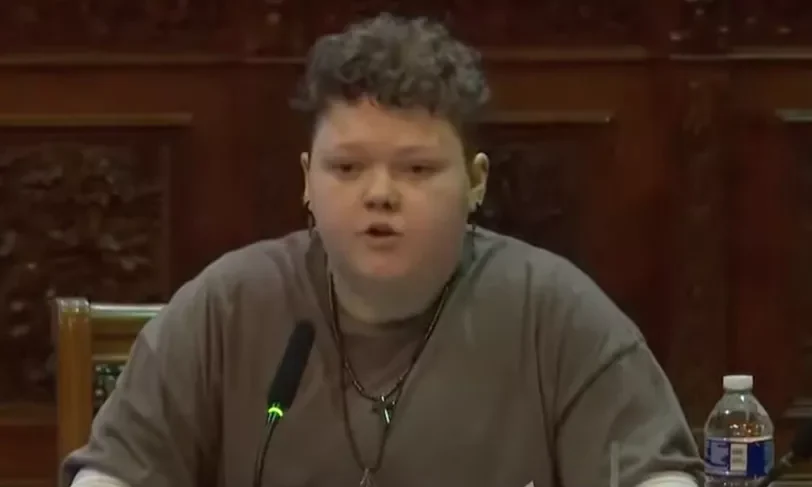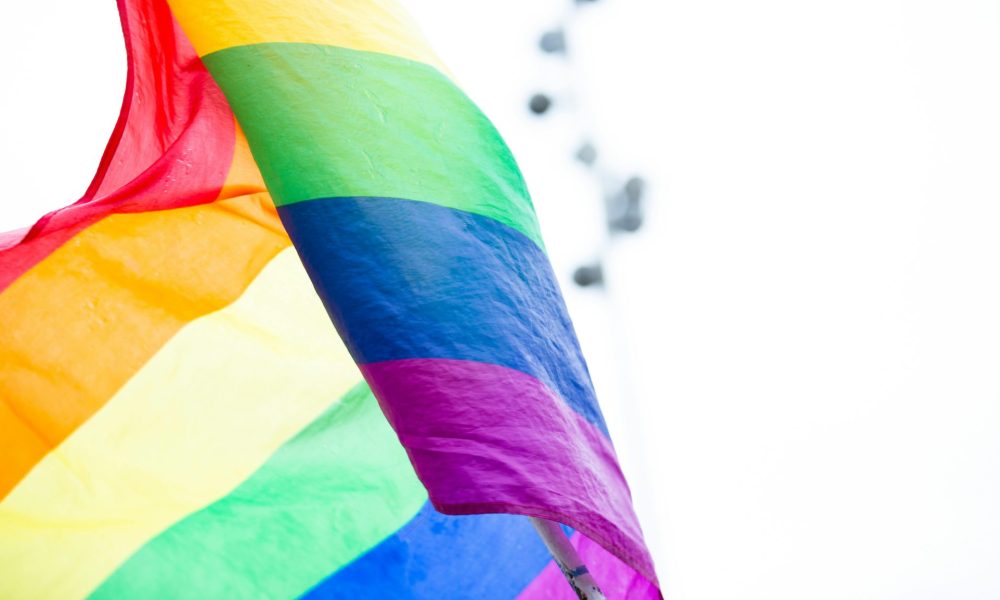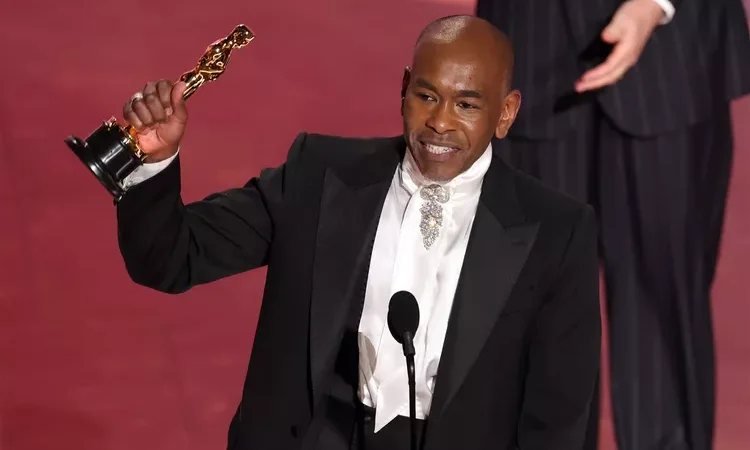A transgender teen in Iowa made an emotional plea on his 18th birthday at the state Capitol, urging lawmakers not to strip away the rights of transgender individuals. Kayde Martin, a high school senior, addressed lawmakers with tears in his eyes, sharing his deep concerns about the future of transgender rights in Iowa.
“I deeply trouble me that after 18 years of living here with my family, attending school, working, this is the focus of our state,” Martin said, his voice breaking as he spoke against the bill that seeks to repeal civil rights protections for transgender people. His words were a call for empathy, understanding, and fairness.
Martin’s speech was part of a larger effort to stop a law that ultimately passed, making Iowa the first state in the nation to repeal anti-discrimination protections specifically for transgender people. This new law has garnered national attention, as it underscores the ongoing struggle for civil rights within the LGBTQ+ community.
“Good morning, my name is Kayde Martin, and today I speak not just for myself, but for many other transgender youths in Iowa,” Martin began. “I was born on February 27, 2007. Today is my 18th birthday. I stand before you fighting for the same basic civil rights that every Iowan deserves by humanely asking you to vote against this bill.”
Martin, who plans to attend the University of Northern Iowa in the fall, shared his desire to live independently without fear of discrimination. He expressed frustration that some people, particularly those who defend women’s rights, seem to do so selectively, particularly when it comes to transgender individuals.
“I’ve heard some people talk about women’s rights… Why do women’s rights only seem to be defended when it is used to be against the transgender community? Where’s the same outcry when it comes to women’s choices in their own bodily autonomy?” Martin questioned.
Raised in a Christian household, Martin used his faith as a foundation for his call for respect and love for all people, regardless of their gender identity. “A good Christian knows that only the Lord is one to judge,” Martin said, advocating for kindness and understanding over judgment. “Nobody knows the heavenly father’s plan.”
He concluded his emotional speech with a heartfelt plea to the lawmakers: “I want to be able to be the person I was meant to be, and as the person that God knows me to be. Please, don’t take my rights away simply because you disagree with who I am. Being trans is not a choice; it is a reality that you come to when you learn to understand yourself and love yourself.”
Martin called for a civil discourse that would allow for respectful disagreements rather than divisiveness. He expressed hope that Iowans could come together, despite their differences, to avoid further dividing the state.
His plea echoed the sentiments of thousands of people who protested the bill alongside him. Despite widespread opposition, the state’s Republican-dominated legislature fast-tracked the bill, with most Republicans supporting the law along party lines. The bill, which has been widely criticized by Democrats and LGBTQ+ advocates, includes provisions that will allow discrimination against transgender and gender-nonconforming individuals in housing, employment, and credit.
Iowa Governor Kim Reynolds (R) signed the bill into law, defending it as “common sense” legislation. “It is common sense to acknowledge the obvious biological differences between men and women,” Reynolds said during a signing ceremony. “But unfortunately, these commonsense protections were at risk because… the Civil Rights Code blurred the biological line between the sexes.”
However, many argue that the law is not really about protecting women and children, as Republicans claim. Studies have shown that cisgender men—rather than transgender women—are responsible for most of the harm done to women in sports, citing factors like a lack of funding and support for women’s athletic programs. Critics argue that the bill does little to protect women and children but instead targets the transgender community.
Democratic lawmakers in Iowa, including Rep. Aime Wichtendahl, the state’s only trans legislator, condemned the bill. Wichtendahl said that the purpose of the legislation was to “erase us from public life and to stigmatize our existence, to make our existence illegal, to force us back into the closet.” Wichtendahl added, “The authors of these bills wish us every harm,” emphasizing the broader impact this legislation could have on transgender individuals’ lives.
As Martin and other LGBTQ+ advocates continue to push for equality and protection from discrimination, the fight for transgender rights in Iowa and across the country is far from over. The outcome of this legislation in Iowa may set a dangerous precedent for other states considering similar laws, underscoring the need for continued activism and awareness.
Martin’s brave stand at the Capitol reflects the struggles many transgender youth face as they navigate a world that is often hostile to their identity. His message serves as a reminder that the fight for equal rights for all, regardless of gender identity, is ongoing and requires the collective effort of individuals, communities, and lawmakers alike.









